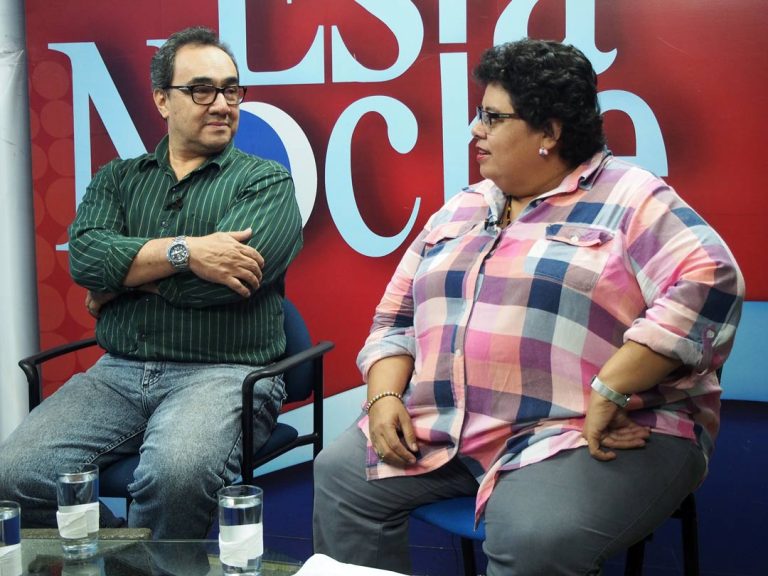16 de diciembre 2016

Children of Exile: The Births “Sowing Hope” in the Camp of Nicaraguan Farmers

PUBLICIDAD 1M
PUBLICIDAD 4D
PUBLICIDAD 5D
Monopolization of the media, centralization of information, intimidation and self-censorship are the main threats to the exercise of journalism

El experto en comunicación Alfonso Malespín y la directora de Radio Universidad Azucena Castillo en el programa Esta Noche. Olga Sánchez/Confidencial.
Communications expert Alfonso Malespin and Azucena Castillo, director of the Radio Universidad station, share the conviction that freedom of the press is at risk in Nicaragua, due to a “State policy” of denying the independent media access to information, intimidating journalists and generating self-censorship.
In an interview with the Esta Noche [“Tonight”] television show, Azucena Castillo affirmed that this “State policy” dictates which topics are of public interest and which are not. Like Confidencial magazine, Radio Universidad has been barred from access to public press conferences with topics of interest for Nicaraguans who follow the independent media.
Alfonso Malespin asserts that the principal obstacle the communications media face is self-censorship.
For Malespin, no one is free of the self-censorship; from public functionaries, who deny access to information, right up to the rest of society in general, all are victims of this evil that puts the state of democracy on the downhill slide.
One of Azucena Castillo’s greatest concerns is the passivity of the population that doesn’t demand a just system and simply “believes everything that’s said in the [official] media.”
For his part, Malespin feels that the Nicaraguan communications media in general needs to be more self-critical. “There’s a disconnect with a series of topics that are important to the population,” he says. In the same vein, he emphasizes that the Nicaraguan communications media aren’t realizing “diligent journalism.” “There’s no journalistic agenda beyond offering the statistics and giving a few examples,” he affirms.
Importance of the local media
Castillo and Malespin both spoke of the role the local media play as the vehicle that carries the information to the different communities in the country.
Nonetheless, Malespin reiterated that they have many factors running against them, such as the limited access to the national advertising market and the fact that Telcor, the national telecommunications company, only allows them to modernize their equipment “drop by drop,” since this institution in many cases doesn’t allow said equipment to enter into the country. “Even so, with all the economic precariousness, the local media has a strong commitment to their communities,” Malespin affirmed.
Azucena Castillo assures that the panorama of the local media in Central America “isn’t a happy one,” but that in spite of everything she values the work that these media outlets realize in their zones.
This article has been translated from Spanish by Havana Times.
Archivado como:
PUBLICIDAD 3M
Periodista nicaragüense con tres años de trayectoria en cobertura de temas culturales y derechos humanos. Ganador del Premio Pedro Joaquín Chamorro a la Excelencia Periodística.
PUBLICIDAD 3D